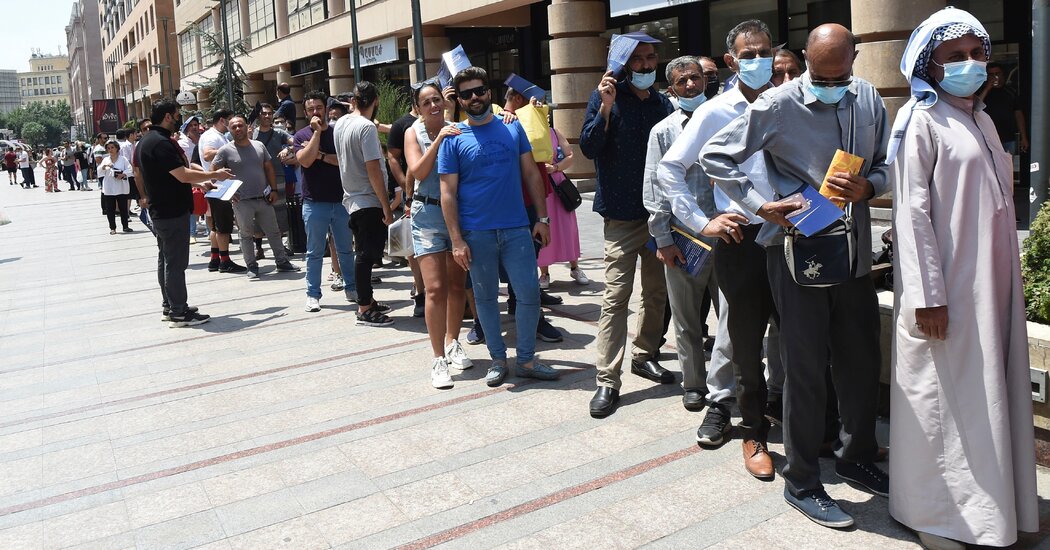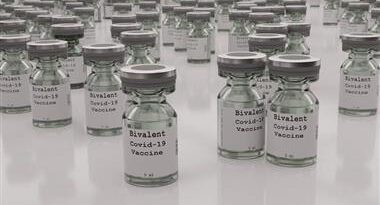Iranians Are Traveling to Armenia to Get Covid Vaccines

Thousands of Iranians frustrated with the government’s chaotic vaccine rollout and desperate for protection after enduring wave after wave of the coronavirus are flocking by air and land to neighboring Armenia to be vaccinated against Covid-19.
Iran is enduring a fifth wave of the pandemic, with Tehran and 143 cities declared high-risk “red” zones and the highly contagious Delta variant of the virus spreading quickly. Over the past two weeks, Iran’s average daily caseload has risen by 62 percent, to more than 16,000, according to a New York Times database.
Only about 2 percent of Iran’s 84 million people been fully vaccinated, according to the Our World in Data project at the University of Oxford. With U.S.- and British-made vaccines banned by Ayatollah Ali Khamenei, Iran’s top leader, the country is waiting for shipments of vaccines made by China and Russia.
Across the border in Armenia, a country of three million, there are more vaccine doses than people willing to take them, largely because of widespread conspiracy theories and misinformation. Officials there announced in May that they would provide free vaccines to foreigners without registration. Mobile clinics were set up in the streets to make them easily accessible to tourists and visitors. Iranians don’t need a visa to travel to Armenia, and the drive from the border to the capital, Yerevan, is about seven hours.
Based on Iran’s vaccine eligibility chart, Parvin Chamanpira, 53, and her husband calculated that it would be months before they qualified, so they traveled from Tehran to Yerevan last week and received their shots from an ambulance parked on the side of the road. She said it took about five minutes, requiring only a blood pressure check and no paperwork. They will return in a few weeks for their second shots.
“This is not an ideal choice for Iranians to be forced to travel and spend a lot of money and be stressed out for getting a vaccine,” Ms. Chamanpira said. “We would not do it if we didn’t have to.”
Armenian officials have not said how many foreign nationals have received vaccinations, but the number of flights between Tehran and Yerevan has been increased to meet the demand. Tickets are sold out until late August, travel agents said. Bus tours centered around vaccinations are also booked. Some Iranians are chartering their own buses and vans or driving their own cars across the border, according to several people organizing the trips.
In a social media group dedicated to planning vaccination trips to Armenia, Iranians at the border posted videos on Friday showing lines of cars and people stretching for miles, saying the wait was at least 13 hours.
Among ordinary Iranians and medical workers facing the surge in cases, anger at the government is mounting. Some prominent physicians have called for the health minister to be prosecuted for his mishandling of the pandemic and the vaccine rollout.
“Our only weapon is immediate and fast vaccination of the public,” Dr. Saeedreza Mehrpour, the head of Shariati Hospital in Tehran, said on his Instagram page on Thursday, criticizing the country’s leaders for putting defiant ideology over public health. “I wish we had better relations with the worlds.”
President Hassan Rouhani said this month that Iran would expand its vaccine distribution effort in the coming weeks by importing more foreign vaccines and producing domestic ones. So far it has received more than 2.1 million doses of the AstraZeneca vaccine through Covax, the global vaccine-sharing program.
In the meantime, Iranians seeking vaccination have been largely left on their own, including those in higher-risk groups. Fahimeh Hosseini, 72, a retired banker, said she recently waited for four hours with dozens of other older people outside a clinic in Tehran for a second dose of the vaccine, only to be told there were no more. The clinic told them appointments for a second dose could not be scheduled because there was no predicting when the vaccine would be in stock.
“They told us to keep coming back until you get lucky,” she said.
The lack of vaccines has led some Iranians to turn to the black market. One 37-year-old manager of a trade company, who declined to use his name because he had acted illegally, said he was told he was buying the AstraZeneca vaccine but had no way to know if that was true.
Iran’s intelligence ministry announced this week that it had made arrests among several networks illegally selling and distributing Covid vaccines.
*** This article has been archived for your research. The original version from The New York Times can be found here ***


